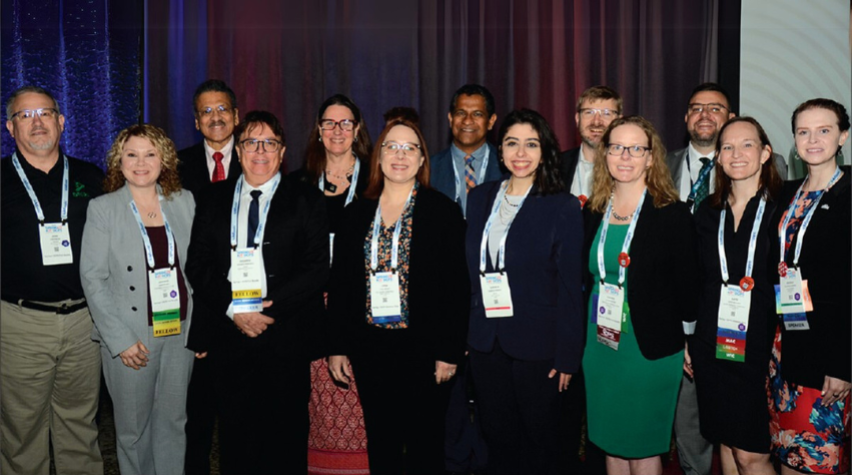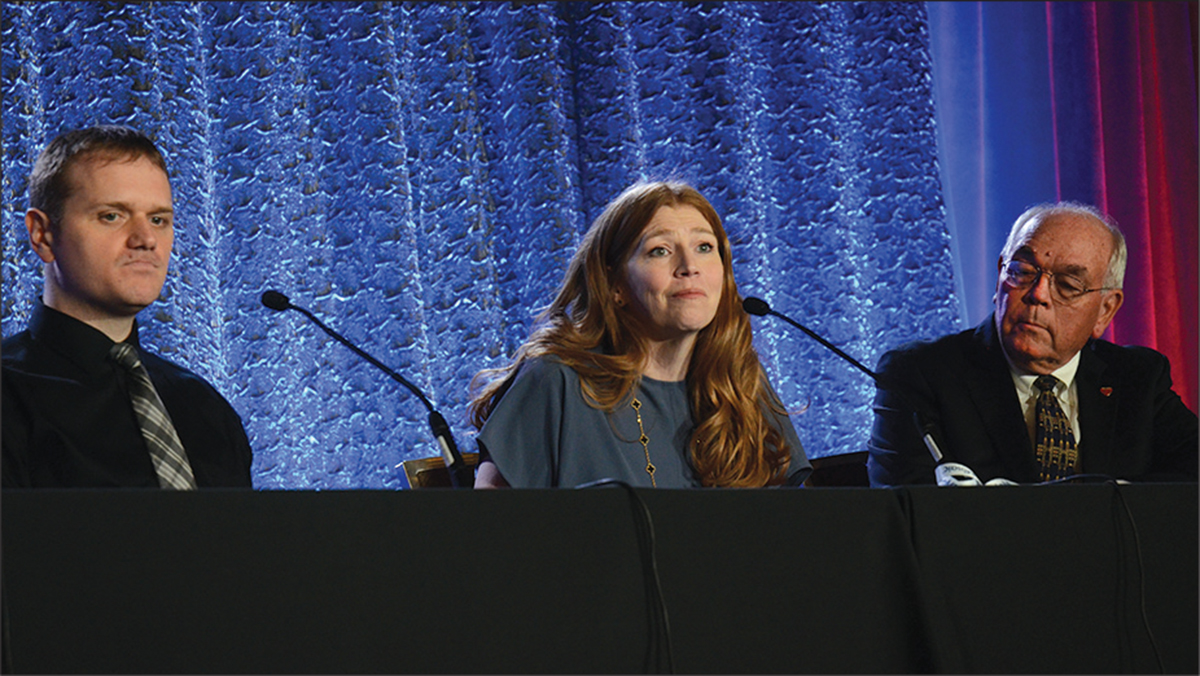
The Center for Chemical Process Safety (CCPS), a technical directorate of the American Institute of Chemical Engineers (AIChE), commemorated 40 years of leadership and contributions to industry during the 21st Global Congress on Process Safety (GCPS), held April 6–10 in Dallas, TX. Presented in conjunction with the co-located 2025 AIChE Spring Meeting, the Global Congress marked the CCPS anniversary with sessions that illuminated the progress achieved in process safety throughout the chemicals industries, while envisioning the future path of process safety.
Setting the stage for the Global Congress, a plenary session on April 7 featured panelists who delivered an overview of the past progress, current status, and future directions of CCPS’s process safety stewardship. Following the plenary, and as a program component of the CCPS International Conference, a session devoted to the organization’s 40th anniversary projected CCPS’s visions for process safety into the future, and also included reflections on the milestone activities and people who helped to establish CCPS as the standard-bearer for process safety.

The GCPS plenary featured panelists included (from left) Scott Link (NOVA Chemicals), Samantha Scruggs (Archaea Energy), and Peter Lodal (D&H Process Safety), who characterized process safety’s future prospects, current status, and foundations, respectively. Photo: G. Ellis
The origin and continued progress of CCPS
AIChE established the Center for Chemical Process Safety on March 25, 1985, in response to the 1984 gas leak incident in Bhopal, India. On December 3, 1984, water contamination in a methyl isocyanate storage tank created a toxic gas release in Bhopal, causing more than 3,000 fatalities and over 100,000 injuries to nearby residents. In February of 1985, industry leaders asked AIChE to lead a collaborative effort to eliminate catastrophic process safety incidents. Soon after its March 1985 inception, CCPS completed its first book, Guidelines for Hazard Evaluation Procedures.
Since then, CCPS has published more than 100 books documenting the experiences and expertise of process and process safety engineers and has shared these techniques and strategies with industries worldwide. Today, more than 280 organizations, including many of the world’s leading chemical, petroleum, pharmaceutical, mining, and related manufacturing companies, participate in CCPS’s work.
Leading up to the Global Congress, Shakeel Kadri, Executive Director and CEO of CCPS, said that the anniversary programming would reflect the body of knowledge represented by CCPS’s member organizations. “This year, as we mark the 40th anniversary of CCPS, we will pause to reflect on the progress we’ve made in process safety and recommit ourselves to CCPS’s vision of ‘A World Without Process Safety Incidents,’” said Kadri.

Scott Berger, who directed CCPS from 2001 to 2015, discussed the formative years of CCPS during a special session.
More on the annual GCPS
The annual GCPS provides a forum where process safety engineers, plant managers, and process design experts are able to discuss technologies and strategies to ensure plant safety, manage risk, and strengthen process safety management (PSM) programs worldwide. The 21st Global Congress incorporated the programming of the 59th Annual Loss Prevention Symposium, the 40th CCPS International Conference, the 27th Process Plant Safety Symposium, and the 14th Process Safety Management Mentoring Symposium. Additional sessions delivered “Perspectives on Process Safety from Around the World,” as well as “Case Histories and Lessons Learned” from real-world incident investigations.
Additional coverage of the 2025 AIChE Spring Meeting and the 21st Global Congress on Process Safety will appear in the June issue of CEP.
This article originally appeared in the Institute News column in the May 2025 issue of CEP. Members have access online to complete issues, including a vast, searchable archive of back-issues found at www.aiche.org/cep.


